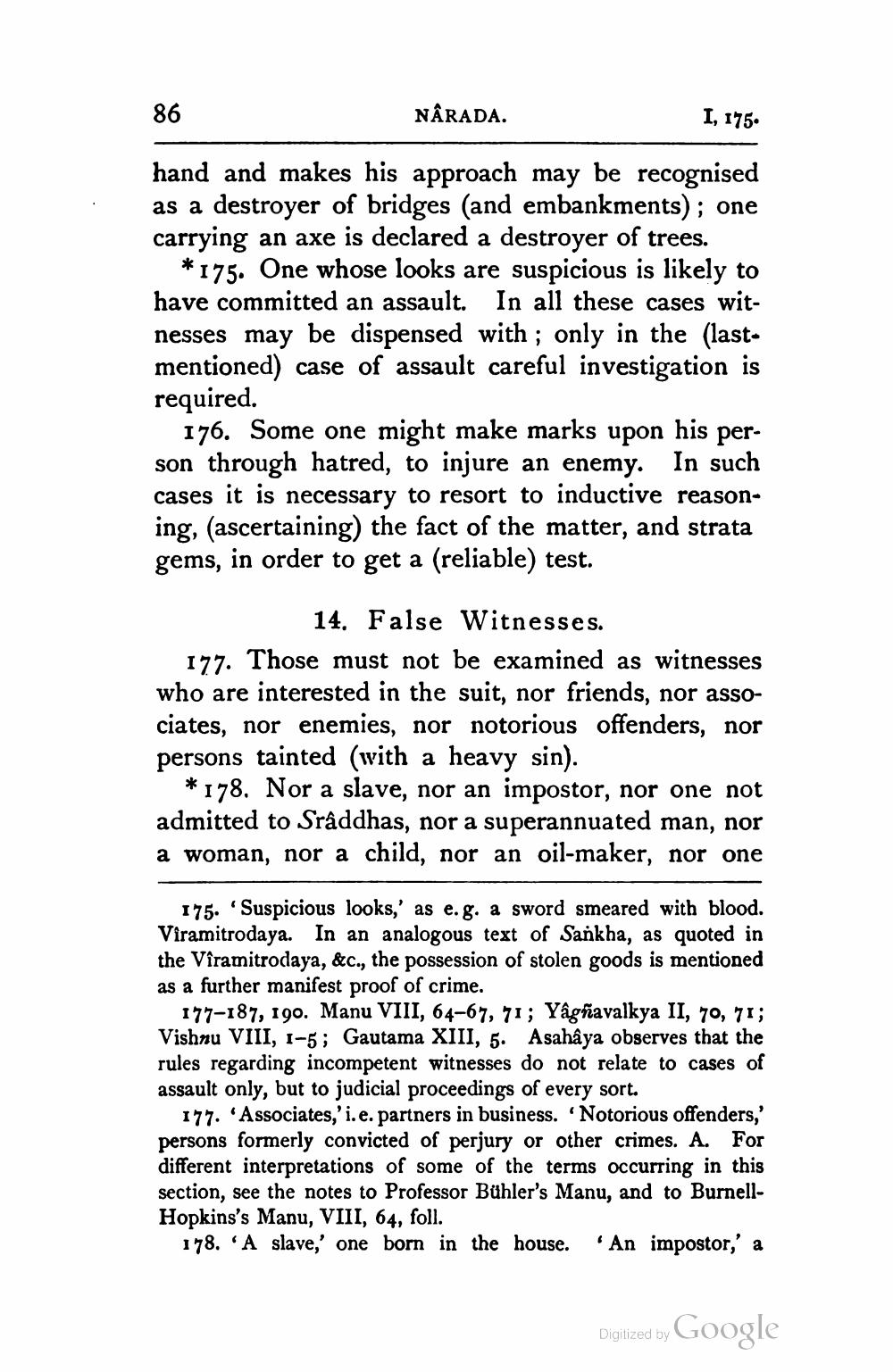________________
86
NÂRADA.
I, 175.
hand and makes his approach may be recognised as a destroyer of bridges (and embankments); one carrying an axe is declared a destroyer of trees.
* 175. One whose looks are suspicious is likely to have committed an assault. In all these cases witnesses may be dispensed with ; only in the (lastmentioned) case of assault careful investigation is required.
176. Some one might make marks upon his person through hatred, to injure an enemy. In such cases it is necessary to resort to inductive reasoning, (ascertaining) the fact of the matter, and strata gems, in order to get a (reliable) test.
14. False Witnesses. 177. Those must not be examined as witnesses who are interested in the suit, nor friends, nor associates, nor enemies, nor notorious offenders, nor persons tainted (with a heavy sin).
*178. Nor a slave, nor an impostor, nor one not admitted to Sraddhas, nor a superannuated man, nor a woman, nor a child, nor an oil-maker, nor one
175. Suspicious looks,' as e. g. a sword smeared with blood. Viramitrodaya. In an analogous text of Sankha, as quoted in the Vîramitrodaya, &c., the possession of stolen goods is mentioned as a further manifest proof of crime.
177-187, 190. Manu VIII, 64-67, 71; Yâgñavalkya II, 70, 71; Vishnu VIII, 1-5; Gautama XIII, 5. Asahaya observes that the rules regarding incompetent witnesses do not relate to cases of assault only, but to judicial proceedings of every sort.
177. 'Associates,'i.e. partners in business. "Notorious offenders,' persons formerly convicted of perjury or other crimes. A. For different interpretations of some of the terms occurring in this section, see the notes to Professor Bühler's Manu, and to BurnellHopkins's Manu, VIII, 64, foll.
178. 'A slave,' one born in the house. An impostor,' a
Digitized by Google




